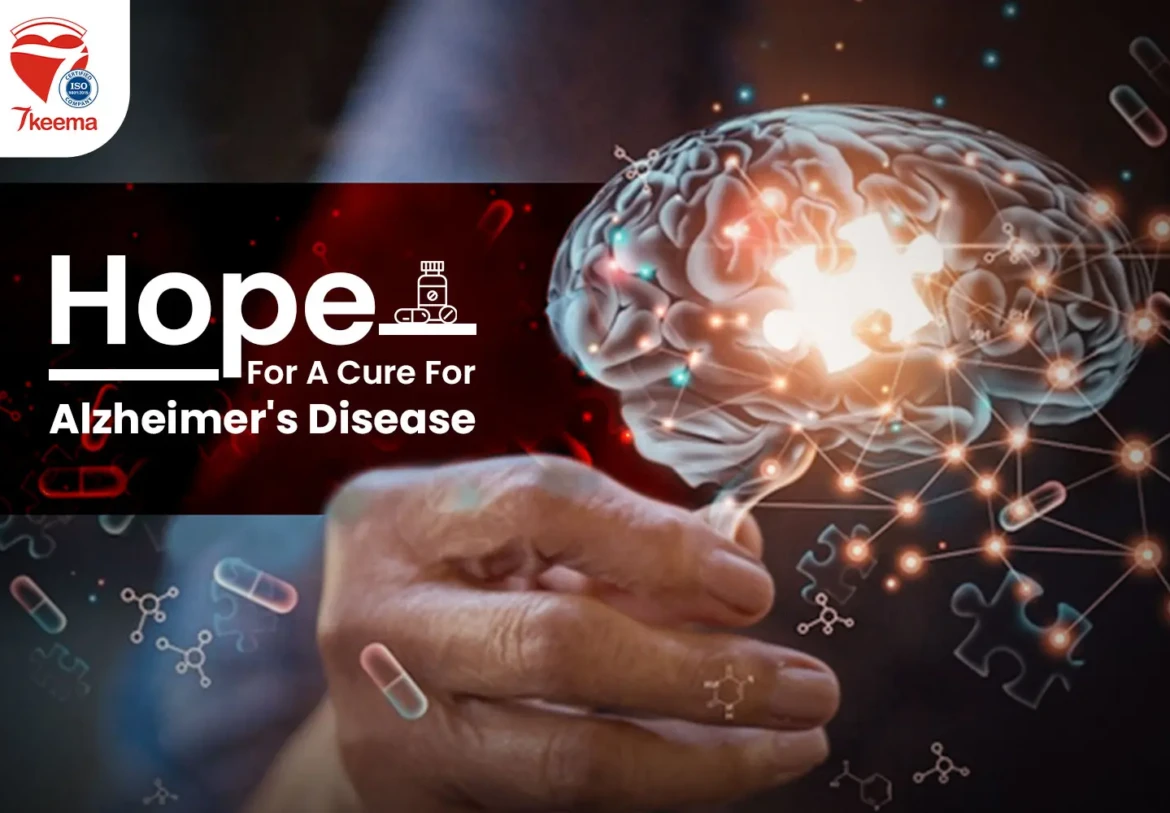Alzheimer’s disease is not linked to a single cause, but there are several factors other than genetics that can affect each person differently. One of the most recognized risk factors for developing this disease is age, as researchers believe that genetics plays a major role in developing it, and despite this, genetics is not the only factor for infection, a healthy life may help reduce the risk of developing Alzheimer’s disease. Studies show that adequate physical activity, a correct diet, not excessive alcohol use, and not smoking reduces the risk of developing the disease. Some changes in the brain can occur years before the first symptoms appear. Researchers are studying the effect of diet and environment on Alzheimer’s disease. There is scientific evidence that healthy habits can reduce the risk of certain diseases such as cancer, diabetes, and heart disease and may also reduce the risk of Alzheimer’s disease.
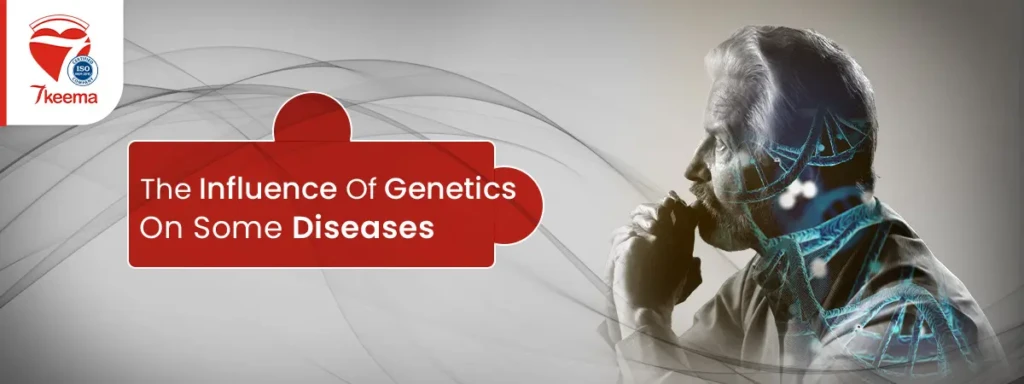
The influence of genetics on some diseases
Genes contain DNA, which is the code that controls body form and function, from growth to regulating the functions of body systems. Certain genes that do not fully function can cause certain diseases. Apolipoprotein E is a protein that plays a role in the metabolism of fats in the human body. A subtype of the APOE gene is responsible for Alzheimer’s disease and some cardiovascular diseases. Carrying the APOE ε4 form of the gene does not mean that a person will definitely develop the disease, but some people who do not carry the APOE ε4 gene may also develop Alzheimer’s disease. Scientists have also identified several regions of concern in an organism’s DNA that may increase or decrease a person’s risk of developing late-onset Alzheimer’s disease. People develop Alzheimer’s disease from their thirties to mid-sixties. Most people with Down syndrome develop Alzheimer’s disease. This may happen because people with Down syndrome have an extra copy of chromosome 21, which contains the gene that generates harmful amyloid.
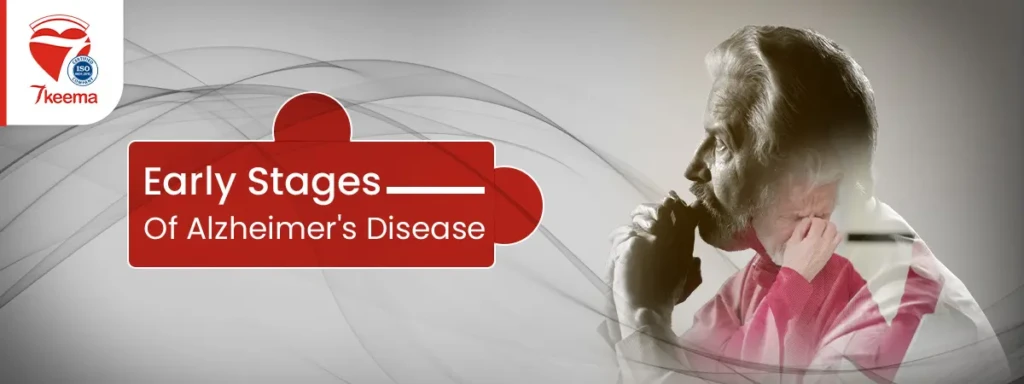
Early stages of Alzheimer’s disease
Alzheimer’s disease begins without any symptoms, and this stage is called the first stage of Alzheimer’s disease, and it is identified when medical examinations are conducted. This stage of the disease can last for several years. Although the patient does not notice any changes, modern medical techniques can now identify deposits of the protein amyloid beta, whose presence is considered a sign of Alzheimer’s disease. There is genetics that can indicate the possibility of developing the disease, especially in its infancy.
Complications of Alzheimer’s disease
Simple dementia due to Alzheimer’s disease
Usually, the disease is discovered by the family in the stage of mild dementia or when resorting to genetics, where the family notices that the person has a noticeable problem with memory.
In the mild dementia stage, people may feel:
Memory loss for new events.
Having difficulty in solving problems.
Some personality changes.
Difficulty organising and expressing ideas.
Loss of the way, or placing items in the wrong place.
Mild dementia due to Alzheimer’s disease
Symptoms of forgetfulness worsen, with an increased need for assistance with daily activities and personal care.
People with Alzheimer’s disease who are in the mild dementia stage may develop:
losing awareness of where they are and the days of the week. Difficulty distinguishing between family or friends.
More memory loss. People forget details about their personal lives, such as their home addresses or phone numbers.
Increased need for help with some daily activities. Asking for help while choosing clothes, when bathing, grooming, using the bathroom, and other personal care activities.
The presence of some changes in personality and behaviour. They may become convinced that friends, family, or an elderly sitter is stealing things from them. People often get anxious, especially late in the day.

Severe dementia due to Alzheimer’s disease
In the late stage of the disease, which is severe dementia resulting from Alzheimer’s disease. Patients feel:
Loss of ability to communicate properly. The individual can no longer speak intelligibly.
Increased need for daily assistance with daily living tasks. Complete assistance with eating, dressing, using the bathroom, and all other daily tasks.
The person may become unable to walk or even sit without assistance. Eventually, the person loses the ability to swallow and control bladder and bowel functions.
Ways to prevent Alzheimer’s disease
There is no doubt that there are many health benefits of exercising, as it helps with physical fitness and reduces the risk of chronic diseases such as depression, diabetes, high blood pressure, and other diseases. Some potential benefits for people who exercise on the brain compared to those who don’t:
Less exposure to cognitive decline.
Presence of: Alzheimer’s plaques and tangles in the brain to a lesser extent.
Do better on some cognitive tests.
Increase the ability to plan and organize.
Cognitive exercises designed to strengthen memory help improve memory, cognition, and the ability to respond to everyday tasks in older adults. Keeping the brain active may reduce the risk of Alzheimer’s disease, and frequent mental exercise helps focus and prevent the disease.
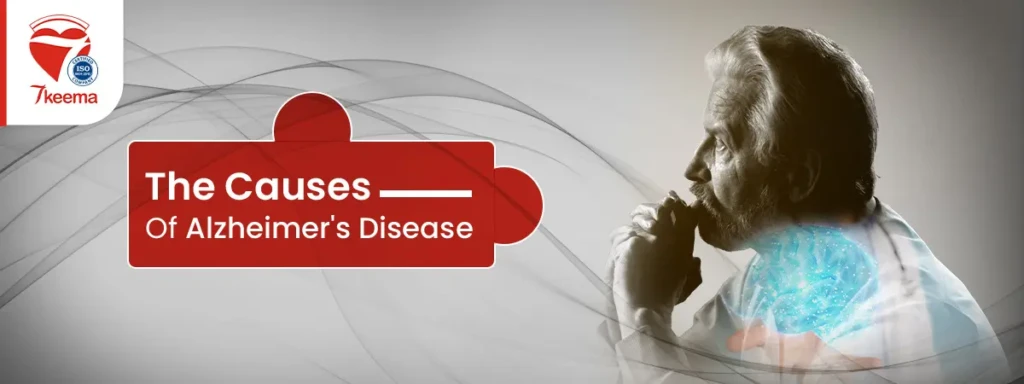
The causes of Alzheimer’s disease
This disease results from the buildup of abnormal proteins in and around brain cells. One of the proteins involved is called amyloid, deposits of which form plaques around brain cells, and deposits of which form tangles within brain cells. This occurs several years before symptoms appear.
When brain cells undergo certain changes, there is a decrease in chemical messengers (called neurotransmitters) that are involved in sending messages or signals between brain cells. Levels of a neurotransmitter, acetylcholine, are particularly low in the brains of people with Alzheimer’s disease. Over time, different areas of the brain shrink. The first areas to be affected are usually those responsible for memories.
The first symptoms may be problems with vision or speech rather than with memory.
Age is the most important factor in the etiology of Alzheimer’s disease. The risk of developing the disease doubles every 5 years after reaching 65, but it’s not just the elderly who are at risk of developing Alzheimer’s disease, about 1 in 20 people with the condition are younger than 65. This is called early-onset Alzheimer’s disease, and it can affect people from about age 40.
Family history of disease, genes, and genetics can contribute to an increased risk of Alzheimer’s disease, although the actual increase in risk is low but in a small number of families Alzheimer’s disease occurs due to genetics due to the inheritance of one gene and the risk of transmission of the disease is much higher.
Down syndrome. People with Down syndrome are more likely to develop it because the genetic changes that cause Down syndrome can also cause amyloid plaques to build up in the brain over time, leading to the disease in some people.
Certain head injuries. People who have previously had a severe head injury may be at increased risk of Alzheimer’s disease.
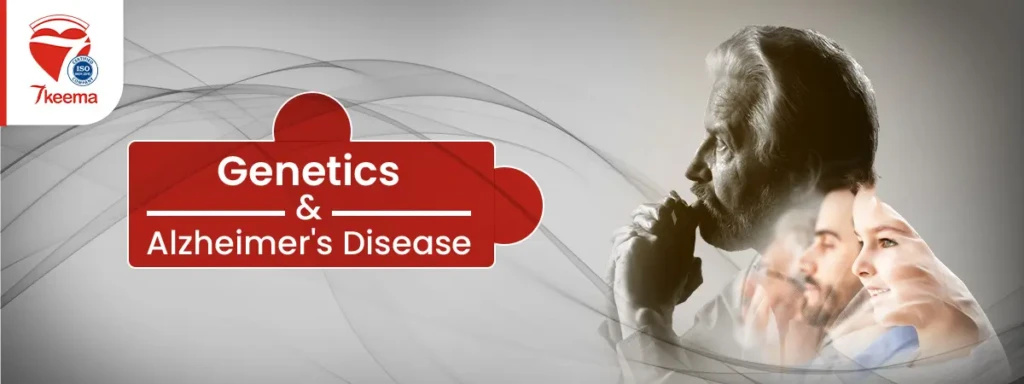
Alzheimer’s and genetics
The three single-gene mutations associated with early-onset Alzheimer’s disease are:
Amyloid precursor protein (APP) is located on chromosome 21
Presenilin 1 (PSEN1) is located on chromosome 14
Presenilin 2 (PSEN2) is located on chromosome 1
Mutations in these genes lead to the production of abnormal proteins associated with the disease. Each of these mutations plays an essential role in the breakdown of the APP protein. This breakdown is part of a process that generates harmful forms of amyloid plaques, which is what causes Alzheimer’s disease. A child whose biological father or mother carries a genetic mutation in one of these three genes has a chance of inheriting that mutation. If the mutation is in fact inherited, the child has a very strong chance of developing early Alzheimer’s disease.
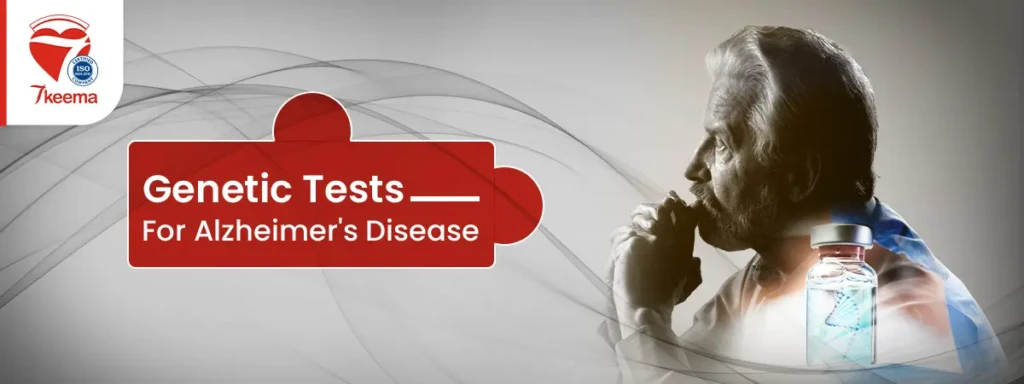
Genetic tests for Alzheimer’s disease
A blood test can determine which APOE gene you have, but genetics cannot predict whether or not you will develop Alzheimer’s disease in the future, but doctors mostly use these tests for research purposes. The test can show who has certain risk factors so that they can monitor Some changes in the brain if the disease develops.
Doctors usually do not recommend a genetic test to detect late-onset Alzheimer’s disease because the results may be incorrect to a large extent as genetics cannot be relied upon only, but if you suffer from some symptoms or have a family history of the disease, the doctor may recommend tests that help in determining Early diagnosis of Alzheimer’s disease. Usually, doctors can diagnose it without requesting a genetic test. Researchers also believe that there are many genes that affect the risk of developing Alzheimer’s disease, and early detection helps doctors in a good diagnosis.
A blood test can determine which APOE a person has, but the results cannot predict who will or will not develop Alzheimer’s disease. Currently, the APOE test is mainly used in research work. These tests help scientists notice early brain changes in participants and compare the effectiveness of possible treatments for patients with different APOE profiles. Doctors also use genetics to help diagnose early Alzheimer’s disease and select people with a strong family history of Alzheimer’s disease or another related disease.
Genetic tests for APOE (genetics) cannot determine an individual’s likelihood of developing the disease but only which risk factor genes a person has. Most researchers believe that it is unlikely that genetics will be able to predict the disease with 100 percent accuracy because there are many other factors that may influence the development and progression of the disease than genetics.
Some people learn about their APOE status through genetic tests or are considering getting this type of test. But sometimes they may want to consult a doctor or a genetic counselor to understand this type of test and to better understand the results of their tests to facilitate early detection of the disease.
References
https://www.nia.nih.gov/health/alzheimers-disease-genetics-fact-sheet
https://www.nhs.uk/conditions/alzheimers-disease/causes/#:~:text=Alzheimer’s%20disease%20is%20thought%20to,form%20tangles%20within%20brain%20cells.
https://www.mayoclinic.org/diseases-conditions/alzheimers-disease/symptoms-causes/syc-20350447
https://www.alzheimers.gov/alzheimers-dementias/alzheimers-disease


